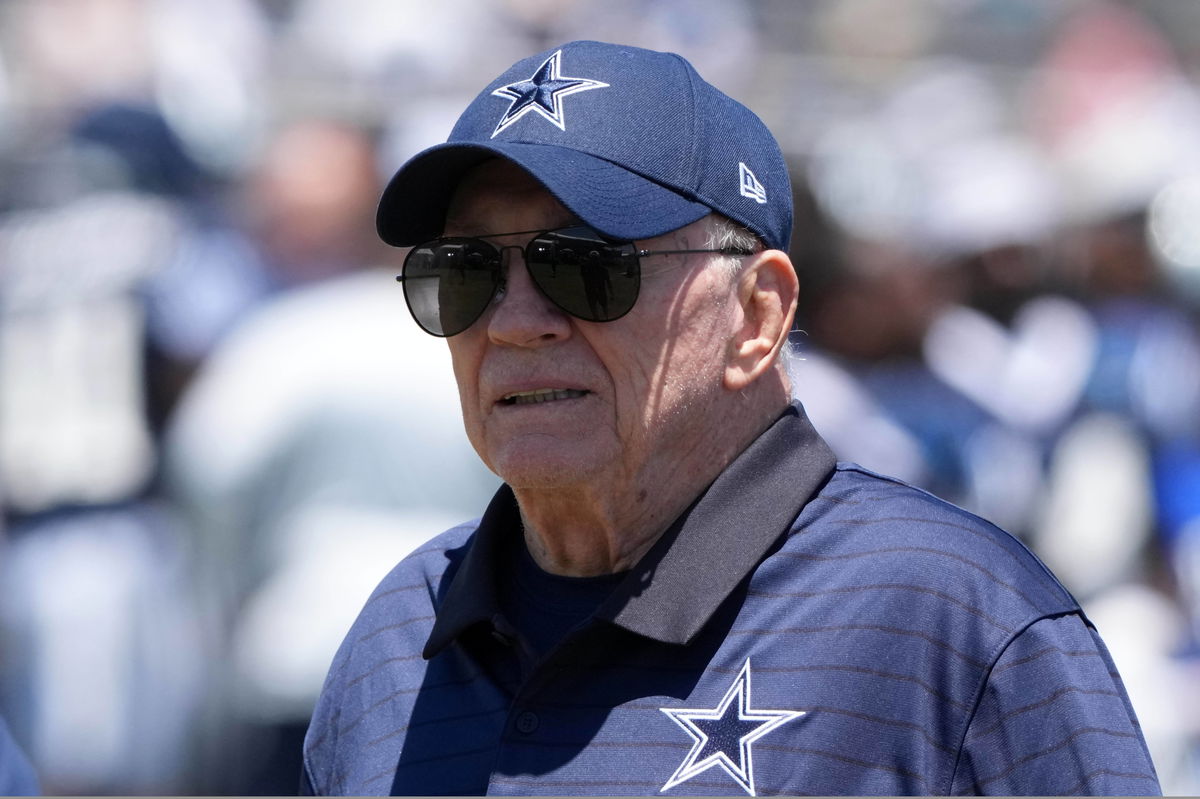
Imago
NFL, American Football Herren, USA Dallas Cowboys Training Camp Jul 27, 2025 Oxnard, CA, USA Dallas Cowboys owner Jerry Jones at training camp at the River Ridge Fields. Oxnard River Ridge Fields California United States, EDITORIAL USE ONLY PUBLICATIONxINxGERxSUIxAUTxONLY Copyright: xKirbyxLeex 20250727_tdc_al2_288

Imago
NFL, American Football Herren, USA Dallas Cowboys Training Camp Jul 27, 2025 Oxnard, CA, USA Dallas Cowboys owner Jerry Jones at training camp at the River Ridge Fields. Oxnard River Ridge Fields California United States, EDITORIAL USE ONLY PUBLICATIONxINxGERxSUIxAUTxONLY Copyright: xKirbyxLeex 20250727_tdc_al2_288
Jerry Jones was never a small-time player, whether walking across the field at AT&T Stadium, juggling microphones from reporters like a pro, or striking deals that remade the professional football universe. Steely, charismatic, and frequently divisive, Jones made a career as a risk-taker and a visionary. His willingness to challenge the status quo not only shaped the Dallas Cowboys but also significantly contributed to expanding the NFL’s reach and business. That sense was something he had from the very beginning of his career.
Watch What’s Trending Now!
When Jerry Jones was seated for an interview on Good Morning America, he reflected on the beginning of his football life. After graduating from college, where he played but realized a professional in-game career wasn’t his future, Jones admitted he couldn’t quite let go of the sport. Instead of settling into the “normal life” that his father encouraged him to embrace, Jones instead opted to pursue a dream that was more fantasy than fact.
He confessed to sneaking away from his job simply to hang around outside of hotel lobbies in Houston, where AFL founder Lamar Hunt and other league officials gathered. “I would sneak off from my job and go down to Houston and just sit around the lobby when I was about 23-24 and just wait on them to break from their meetings and go over and introduce myself. I guess somehow I thought some way it was going to rub off on me,” he confessed.
ADVERTISEMENT
Jones took a big gamble, risking secure jobs for a chance to rub elbows with the power brokers of football. But for him, the charm of being near the sport was worth risking the safety of a classical route. However, his father saw things differently. Jones recalled, ”My parents, especially my father, were really critical and said, ‘Jerry, when are you going to get this football out of your neck?”’ Jones Sr tried to push his son aside, in an attempt that, at the time, held no promise of a profitable career. The tug of war between duty and dream was fierce, but Jerry Jones wouldn’t give in.
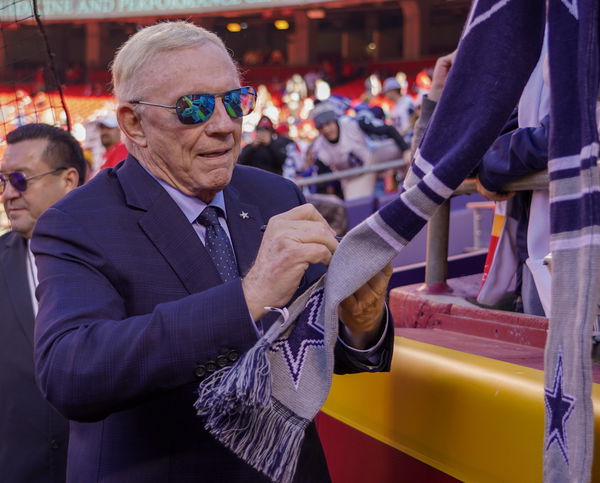
USA Today via Reuters
NFL, American Football Herren, USA Dallas Cowboys at Kansas City Chiefs, Nov 21, 2021 Kansas City, Missouri, USA Dallas Cowboys owner Jerry Jones signs autographs for fans before the game against the Kansas City Chiefs at GEHA Field at Arrowhead Stadium. Mandatory Credit: Denny Medley-USA TODAY Sports, 21.11.2021 14:26:44, 17254185, NFL, Kansas City Chiefs, Arrowhead Stadium, Jerry Jones, Dallas Cowboys PUBLICATIONxINxGERxSUIxAUTxONLY Copyright: xDennyxMedleyx 17254185
He described the obsession as one he simply “couldn’t get out of [his] mind.” That refusal to give up on the dream, in the face of family disapproval, was one of the signs of the man who would give his life to football. And now, when the host asked what his father would say today, Jones’ response was both of pride and reflection. “Oh, he’s proud. There’s no question about it,” Jones shared, understanding his father, a businessman himself, would really like the mix of boldness and risk that shaped his son’s career.
ADVERTISEMENT
Jones’ transformation from dreamer to owner arrived in 1989, when he bought the Dallas Cowboys for $140 million. He asserted his presence at once by firing popular head coach Tom Landry and adding Jimmy Johnson as head coach while seizing the position of GM for himself by firing longtime general manager Tex Schramm. The risk paid dividends, with Dallas winning three Super Bowls over seven years under stars Emmitt Smith and Troy Aikman. That period solidified Jones as a champion builder, a businessman who would make uncomfortable choices.
Today, the Cowboys are valued at well over $10 billion, the most valuable sports team in America—a legacy to Jones’ vision.
ADVERTISEMENT
Jerry Jones’ legacy: Greatness and flaws
There is no question of the “good” of Jerry Jones’ legacy. He turned the Cowboys into a cultural phenomenon, extended the NFL’s business model with the inclusion of networks such as Fox, and built the AT&T Stadium, now aptly named “the House that Jerry Built.” His legacy as one of the key architects of the modern NFL is ensured, and his 2017 Hall of Fame induction formalized his position as a league builder.
But the “bad” is just as prevalent. Since winning the Super Bowl in 1996, the Cowboys have been stuck in decades of mediocrity. With serial postseason letdowns and head coaches who never reached championship heights, critics contend that Jones’ hands-on ownership has hindered the team more than it has helped.
ADVERTISEMENT
From Dak Prescott’s contract talks to CeeDee Lamb’s holdout and the recent trade of Micah Parsons, Jones’ straight-shooting style has sometimes kept even his most outspoken players at arm’s length. As much as his business skills are unmatched, his style has also been destabilizing for the franchise in many ways.
Top Stories
Bills Officially Cut Ties With 4 Players as Josh Allen Remain Without HC After Philip Rivers Quits

ICE to Conduct Immigration Enforcement at Patriots vs. Seahawks Super Bowl LX at Levi’s Stadium, as Per Official
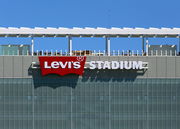
Travis Kelce Makes Major Career Decision as Chiefs TE Contemplates Retirement

Strahan Family in Mourning as Michael Strahan’s Cancer-Free Daughter Grieves Close Friend’s Loss After Cancer Battle
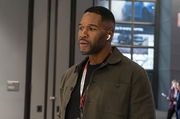
Jerry Jones’ Cowboys Make Triple Firing Decision After Blocking Coach’s Exit
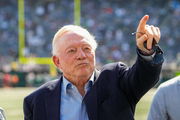
In the end of it all, Jerry Jones is one of the most interesting men in the NFL—a man who gambled his career, defied his dad’s advice, and created an empire for sheer madness of the game.
ADVERTISEMENT
ADVERTISEMENT
ADVERTISEMENT



